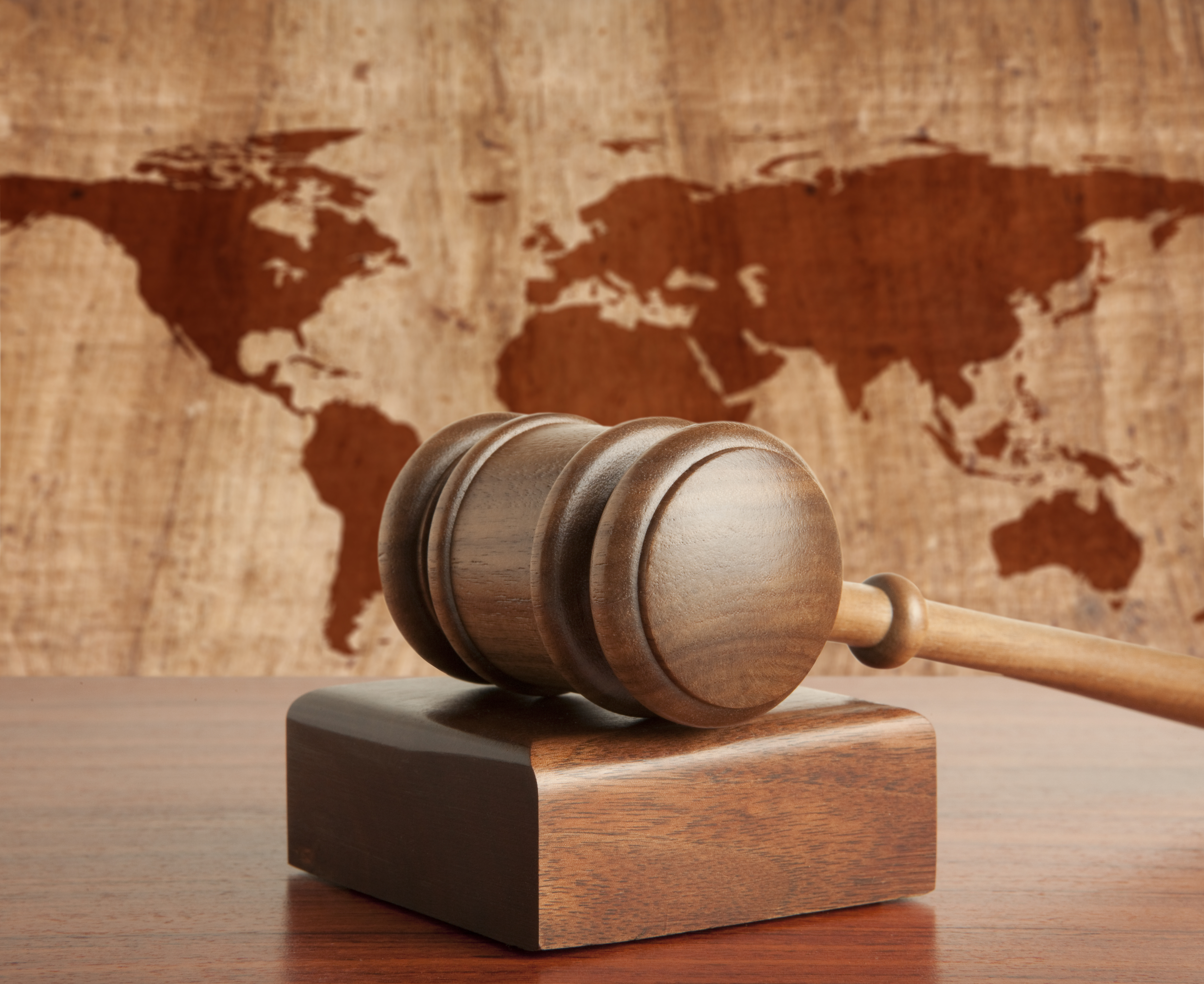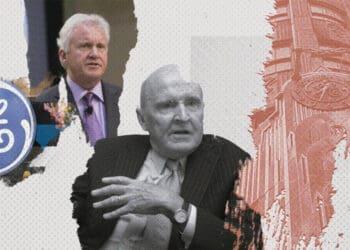This article was republished with permission from FCPAméricas Blog, for which Matteson Ellis is founder, editor and regular contributor.
What is the next frontier in international anti-corruption enforcement? How is the landscape changing, and what challenges will result?
Harvard Law Professor Matthew Stephenson, the Editor & Chief of the Global Anticorruption Blog, addressed the International Bar Association in Mexico City earlier this week about the coming challenges in international anti-corruption enforcement. He highlighted dynamics that lawyers and their clients are beginning to experience. These issues are raising important questions about the future of this field.
Below, FCPAméricas provides a summary of Professor Stephenson’s remarks.
The two most significant macro-level challenges facing those committed to fighting corruption and bribery today are, in a sense, contradictory. On one hand, despite progress, too few jurisdictions affected by transnational bribery are aggressively enforcing their anti-corruption laws. At the same time, increased enforcement by some new jurisdictions is demonstrating a new set of challenges.
As context, the proliferation of regional and global anti-corruption instruments has been notable. It has also exhibited a tradeoff between breadth of membership and strength of commitment to enforcement. International instruments with deep substantive commitments, like the OECD Anti-Bribery Convention and its peer review process, have less international membership. Instruments with large memberships, like UNCAC, have watered down enforcement mechanisms.
Nonetheless, an uptick in enforcement is now underway. More jurisdictions, including European countries and China, are bringing bribery cases, and the trend is likely only to continue. This will bring with it a range of new problems. The following ones are already starting to emerge.
Complications in collaboration among jurisdictions. Enforcement by more jurisdictions brings a greater need for collaboration among law enforcement agencies. This can be complicated, given that various authorities operate within various legal systems. Different systems have different types of prosecutorial discretion, evidentiary rules, disclosure requirements, languages and other characteristics.
Concerns over implicit bias or protectionism. Countries might enforce their laws with implicit bias or protectionism, holding foreign firms to different standards than domestic ones. For example, multinational pharmaceutical, health care and life sciences companies operating in China are now complaining that the Chinese government’s crackdown has overlooked Chinese companies engaged in the same practices. European countries argue that FCPA blockbuster settlements are applied disproportionately to non-U.S. companies, many of which are from Europe. Even if bias is only perceived and not actual, it can still strain relations and impede international cooperation.
Multiple authorities with jurisdiction over the same transaction. The same or closely related transactions might give rise to liability under various laws, and each authority might claim an interest in bringing a case against the same set of defendants. This can lead companies and their lawyers to worry about overlapping or duplicative enforcement, especially given the fact that there is no general principle of double jeopardy under international law. It also raises questions related to companies’ voluntary disclosure decisions and settlement strategies with enforcement authorities. When the FCPA was the only foreign bribery law on the books and enforced, disclosure and settlement calculations were relatively simple. In the new world of enforcement, cost benefit calculations for companies become more difficult. The involvement of multiple authorities can create a disincentive to disclose.
These challenges highlight the need for greater cooperation among authorities going forward. This might be accomplished in various ways. Perhaps it will lead to a revival of regional approaches to enforcement, since cooperation is often easier to accomplish among neighbors. Lawyers and their networks might also perform a crucial role. Given their important participation in civil society, they are well placed to help address these challenges.
The opinions expressed in this post are those of the author in his or her individual capacity and do not necessarily represent the views of anyone else, including the entities with which the author is affiliated, the author`s employers, other contributors, FCPAméricas or its advertisers. The information in the FCPAméricas blog is intended for public discussion and educational purposes only. It is not intended to provide legal advice to its readers and does not create an attorney-client relationship. It does not seek to describe or convey the quality of legal services. FCPAméricas encourages readers to seek qualified legal counsel regarding anti-corruption laws or any other legal issue. FCPAméricas gives permission to link, post, distribute or reference this article for any lawful purpose, provided attribution is made to the author and to FCPAméricas LLC.



 Matteson Ellis serves as Special Counsel to the FCPA and International Anti-Corruption practice group of Miller & Chevalier in Washington, DC. He is also founder and principal of Matteson Ellis Law PLLC, a law firm focusing on FCPA compliance and enforcement. He has extensive experience in a broad range of international anti-corruption areas. Previously, he worked with the anti-corruption and anti-fraud investigations and sanctions proceedings unit at The World Bank.
Mr. Ellis has helped build compliance programs associated with some of the largest FCPA settlements to date; performed internal investigations in more than 20 countries throughout the Americas, Asia, Europe and Africa considered “high corruption risk” by international monitoring organizations; investigated fraud and corruption and supported administrative sanctions and debarment proceedings for The World Bank and The Inter-American Development Bank; and is fluent in Spanish and Portuguese.
Mr. Ellis focuses particularly on the Americas, having spent several years in the region working for a Fortune 50 multinational corporation and a government ethics watchdog group. He regularly speaks on corruption matters throughout the region and is editor of the FCPAméricas Blog.
He has worked with every facet of FCPA enforcement and compliance, including legal analysis, internal investigations, third party due diligence, transactional due diligence, anti-corruption policy drafting, compliance training, compliance audits, corruption risk assessments, voluntary disclosures to the U.S. government and resolutions with the U.S. government. He has conducted anti-corruption enforcement and compliance work in the following sectors: agriculture, construction, defense, energy/oil and gas, engineering, financial services, medical devices, mining, pharmaceuticals, gaming, roads/infrastructure and technology.
Mr. Ellis received his law degree, cum laude, from Georgetown University Law Center, his masters in foreign affairs from Georgetown’s School of Foreign Service, and his B.A. from Dartmouth College. He co-founded and serves as chairman of the board of
Matteson Ellis serves as Special Counsel to the FCPA and International Anti-Corruption practice group of Miller & Chevalier in Washington, DC. He is also founder and principal of Matteson Ellis Law PLLC, a law firm focusing on FCPA compliance and enforcement. He has extensive experience in a broad range of international anti-corruption areas. Previously, he worked with the anti-corruption and anti-fraud investigations and sanctions proceedings unit at The World Bank.
Mr. Ellis has helped build compliance programs associated with some of the largest FCPA settlements to date; performed internal investigations in more than 20 countries throughout the Americas, Asia, Europe and Africa considered “high corruption risk” by international monitoring organizations; investigated fraud and corruption and supported administrative sanctions and debarment proceedings for The World Bank and The Inter-American Development Bank; and is fluent in Spanish and Portuguese.
Mr. Ellis focuses particularly on the Americas, having spent several years in the region working for a Fortune 50 multinational corporation and a government ethics watchdog group. He regularly speaks on corruption matters throughout the region and is editor of the FCPAméricas Blog.
He has worked with every facet of FCPA enforcement and compliance, including legal analysis, internal investigations, third party due diligence, transactional due diligence, anti-corruption policy drafting, compliance training, compliance audits, corruption risk assessments, voluntary disclosures to the U.S. government and resolutions with the U.S. government. He has conducted anti-corruption enforcement and compliance work in the following sectors: agriculture, construction, defense, energy/oil and gas, engineering, financial services, medical devices, mining, pharmaceuticals, gaming, roads/infrastructure and technology.
Mr. Ellis received his law degree, cum laude, from Georgetown University Law Center, his masters in foreign affairs from Georgetown’s School of Foreign Service, and his B.A. from Dartmouth College. He co-founded and serves as chairman of the board of 








